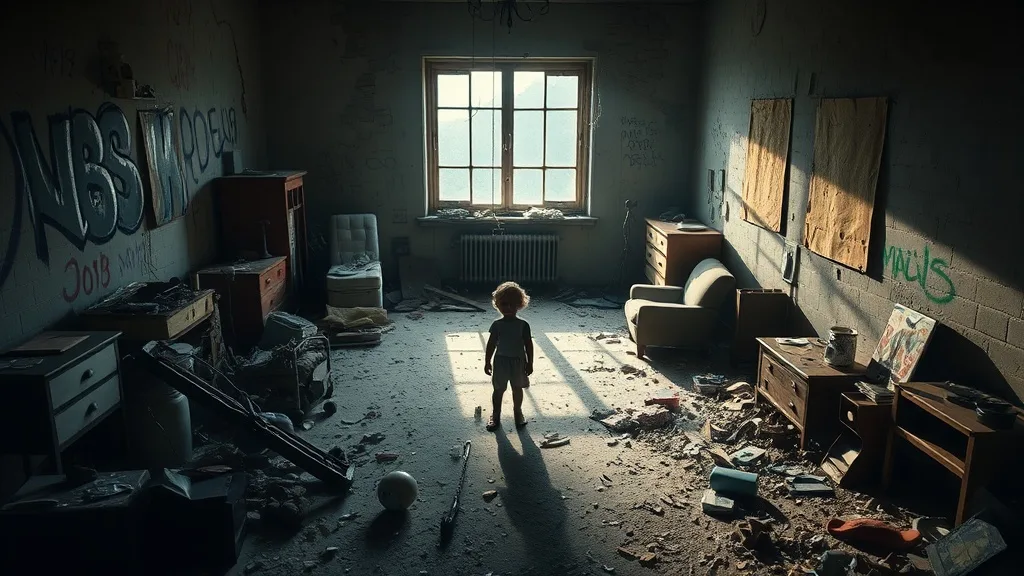8 Intriguing Scenarios of a Childhood Room and Their Potential Interpretations
Want a Personalized Dream Interpretation?
Curious about what your dream symbol means in different contexts? Explore interpretations crafted for your unique scenario—free and personalized!
Get Free Interpretation Now →Table of Contents
1. Dream of returning to your childhood room
Dreaming of returning to your childhood room indicates a longing for the simplicity and innocence of your past. It may suggest a desire to escape the complexities and pressures of your current life and return to a time when things were easier. Alternatively, this dream could symbolize a need to confront unresolved issues from your childhood that may be affecting your present. It may be time to revisit your past and make peace with any lingering wounds or traumas.
2. Dream about exploring your childhood room
Exploring your childhood room in a dream often represents a journey of self-discovery and reflection. It symbolizes a longing to revisit past experiences, memories, and emotions that shaped who you are today. The objects, furniture, and ambiance of the room can provide valuable insights into your current state of mind and unresolved issues. By exploring this familiar yet nostalgic space, you are embarking on a quest to understand your motivations, fears, and aspirations.
3. Dream of your childhood room being destroyed
Dreaming about your childhood room being destroyed symbolizes a loss of innocence and security. It could indicate that you're feeling overwhelmed by the responsibilities and challenges of adulthood. Alternatively, it could represent a traumatic event from your childhood that you're still struggling to process. The dream may be encouraging you to confront your past and work through any unresolved issues that are holding you back.

4. Dream of your childhood room being empty
Dreaming of an empty childhood room signifies feelings of loss, nostalgia, and a longing for the past. It suggests a yearning for the comfort and security that you experienced in your formative years. The emptiness of the room represents a sense of void and a desire to reconnect with that part of your life. It may also indicate feelings of abandonment or a lack of fulfillment in your current circumstances.
5. Dream of being trapped in your childhood room
Trapped in your childhood room indicates you're struggling with past issues. This dream means you feel suffocated and unable to move forward.
You may have unresolved issues from your childhood that are preventing you from growing and changing. This dream could also mean you're feeling nostalgic for the past.
6. Dream of finding something new in your childhood room
Finding something new in your childhood room represents a part of yourself that you have forgotten or neglected. It could be a talent, a hobby, or a dream that you have long since abandoned. This dream is a reminder to reconnect with your inner child and to explore the parts of yourself that you have been hiding away. It is time to let your true self shine through.
7. Dream of your childhood room being filled with toys
In your dream, when your childhood room is filled with toys, it suggests that you are longing for the simplicity and innocence of your childhood. You may be feeling overwhelmed or stressed in your current life and may yearn for a time when things were easier. Additionally, this dream could indicate that you are feeling nostalgic for your past and may be missing the people and experiences of that time.
8. Dream of your childhood room being haunted
Dreaming of your childhood room being haunted suggests that unresolved childhood issues are surfacing and need to be addressed. The haunting may represent fears, anxieties, or unresolved conflicts that you experienced as a child.
It's important to acknowledge these feelings and try to understand why they're still affecting you. Confronting and processing these emotions can help you heal and move forward in your life.
Consider writing down your dreams, including any details you remember, to uncover the deeper meanings behind them. Seeking guidance from a therapist or counselor can also provide valuable insights and support as you navigate these challenging emotions.
Back to interpretation of childhood room

